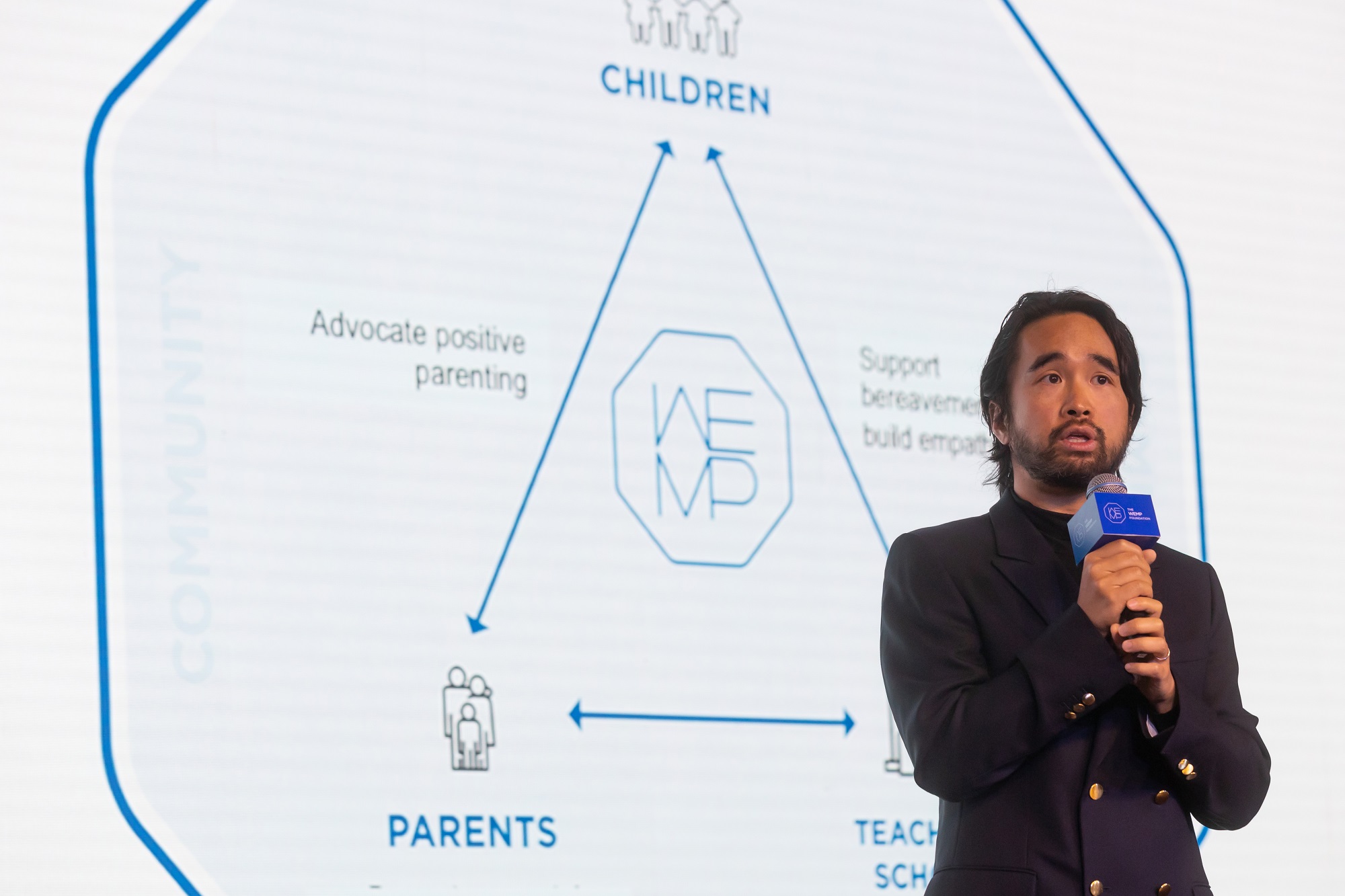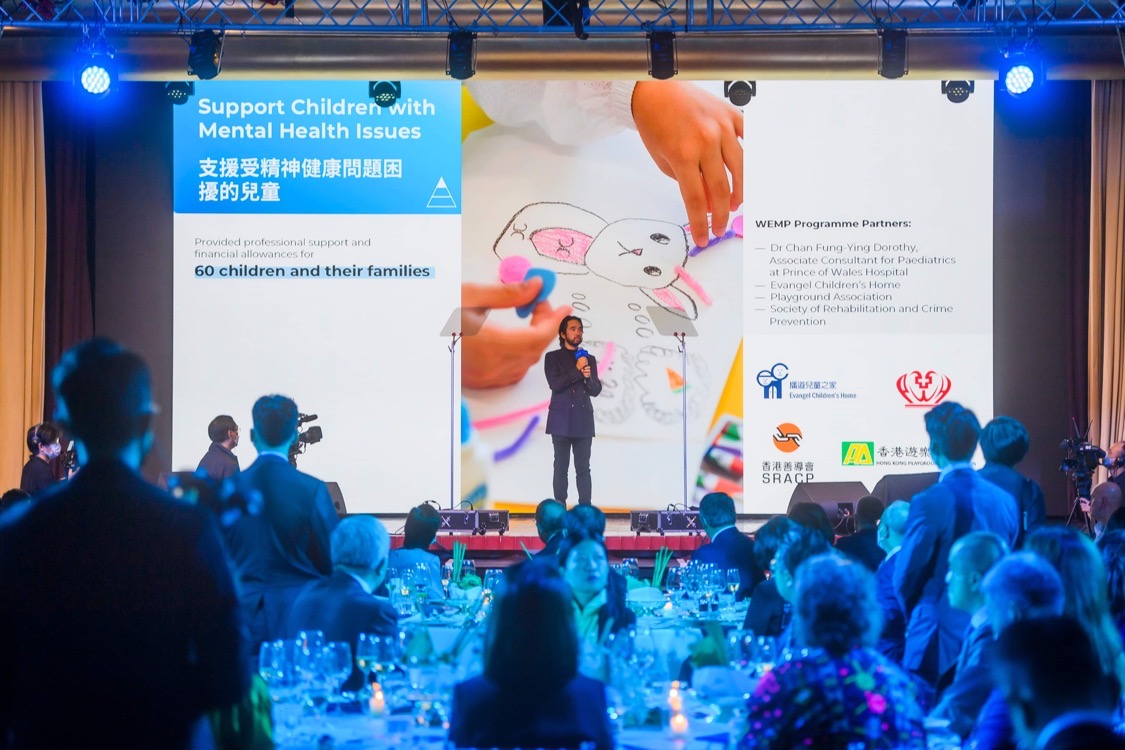Adrian Cheng Launches The WEMP Foundation, First Non-Profit Dedicated to Children’s Mental Health
- Written by Auzzi Shopping
Adrian Cheng: “Children are tomorrow’s leaders. It is our responsibility to educate, nurture and empower them to build a better future for themselves, and the world.”
Non-profit is joined by heavyweight advisors to support underserved children in Hong Kong; innovative family programme has already benefited over 20,000 students and parents to dateHONG KONG SAR - Media OutReach - 11 November 2022 - Children are the key to the future of society.
Creating a healthy and positive environment in which they grow and reach their full potential is therefore imperative. Yet, during nearly three years of the pandemic, many children from underprivileged families are faced with mental problems of varying degrees. To meet this mental health challenge and to provide professional one-stop services on children's mental health support, Adrian Cheng, Chief Executive Officer of New World Development (0017.HK), has personally founded the non-profit organisation The WEMP Foundation, and invited a star-studded advisory committee from across professionals to share innovative, positive parenting skills with parents and teachers. The move is also in response to the ongoing need to enhance social mental health services and support for children and families in Hong Kong. Since its launch, The WEMP Foundation has benefited over 20,000 students and parents. 
The WEMP Foundation aims to nurture and improve four key attributes, namely Wellbeing, EQ, Mental Health and Positive Parenting. According to recent research on the mental health of children and teens, nearly 40% of primary and secondary school students in Hong Kong are showing signs of mental illness. Symptoms include a loss of focus, anxiety and insomnia; suicide rate among teenagers is also climbing, with few seeking psychological support. The problem is strikingly worse among students and parents from underprivileged families. 
Adrian Cheng: Nurturing Wellness and Mental Health of the Next Generation.
Adrian Cheng, the Founder of The WEMP Foundation, said, "Children are tomorrow's leaders, and it is only by creating a healthy environment, with a great mental health and wellness support system, can children grow to reach their full potential, and positively lead our future community. I am excited to announce the official launch of The WEMP Foundation, which will help Hong Kong parents and teachers in their responsibilities of educating and nurturing children. I would also like to thank all our advisors for their continuous guidance, and for joining us on this meaningful journey of nurturing wellness and mental health of the next generation."
Integrated Power House to Empower Children, Parents and Schools
The WEMP Foundation is an all-round collaboration platform that brings together children, parents, schools and community. It actively offers one-stop, innovative parenting education and children's mental health support, and through the collective knowledge and resources of experts from various industries, it aims to protect and safeguard the mental health of underserved children, in order to create a positive and loving environment in which they grow.
Introducing Innovative, Positive Parenting Skills and Mental Health Knowledge
Many parents in Hong Kong are faced with different degrees of parenting challenges, in particular on how to deal with their children's emotions. These include the pressure felt by primary school students during their studies, as well as primary and secondary school students' addiction to computer games and other rebellious behaviours. If ignored by parents, these problems will often create insecurity among children; while if parents choose to deal with these issues by beating, scolding or forcing them to obey, children will feel anxious and uneasy, often bottling up their negative emotions. When faced with even bigger setbacks, these frustrations can easily snowball into mental health problems.
The WEMP Foundation plans to introduce positive parenting skills training to 10 kindergartens, with the goal of sharing positive parenting skills and mental health knowledge to over 10,000 kindergarten parents and children. It is set to be Hong Kong's first education programme that targets early childhood mental health. In addition, the WEMP Foundation is also collaborating with various partners to introduce positive parenting skills and educational activities on emotions to schools across 18 districts, with an aim to benefit 20,000 students and parents.
Building a "Happy Home" Through Film Appreciation
As a means for parents to learn about positive parenting skills, The WEMP Foundation has collaborated with a number of non-profit organisations to screen the award-winning micro-film "Sounds of Silence". The micro-film tells the story of a 10-year-old boy who is emotionally devastated following the loss of his grandmother. Through a touching story, it brings out the common psychological distress and needs of children, including the need for mothers to listen to their troubles when they feel anxious, when their video game addiction is mistaken for rebellion, or when they blame themselves for their own shortcomings.
The WEMP Foundation has also invited renowned educator Charles Yu to share three tips for building a "Happy Home", namely be rational, be optimistic and be far-sighted. According to Yu, rational communication can avoid arguments, while parents should stay optimistic and believe in their children's ability to self-correct and grow through their own mistakes. At the same time, Yu states that parents should be far-sighted, and begin developing their children's merits at an early age, as children's personality and inter-personal skills are often developed early on.

